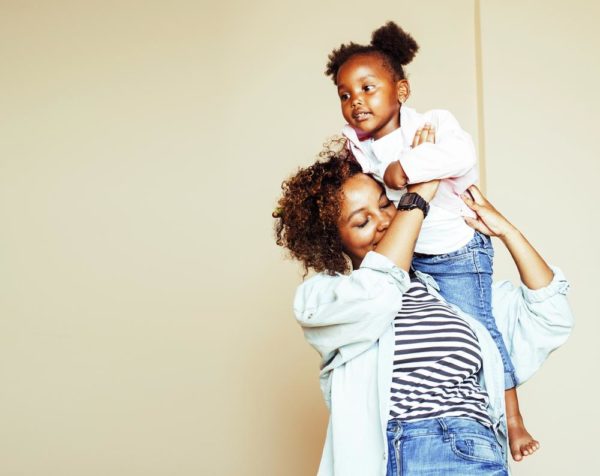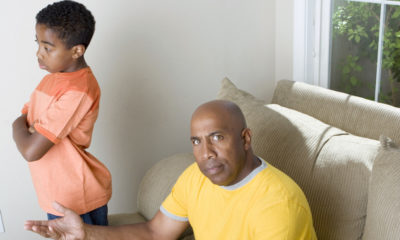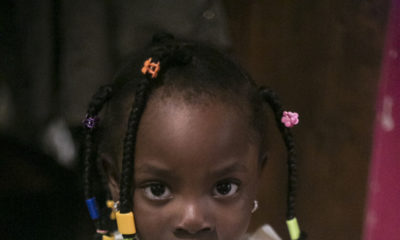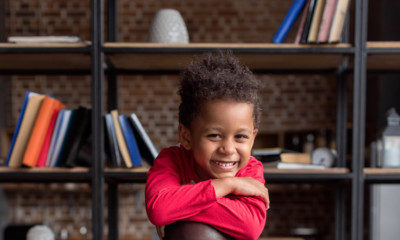Features
Love without Boundaries with Bukola Ayinde: All Children are Welcome
 It will be a thing of joy to see the above caption written boldly on the doorpost of junior churches all over the world. That it doesn’t matter the colour of your skin, whether you are cool or not so cool, whether you have an impairment or not but that a child is seen as a child and not a label.
It will be a thing of joy to see the above caption written boldly on the doorpost of junior churches all over the world. That it doesn’t matter the colour of your skin, whether you are cool or not so cool, whether you have an impairment or not but that a child is seen as a child and not a label.
Children all over the world all want the same things: to be loved and accepted. It is a privilege as a church to provide an enabling environment for children who attend to thrive.
If your church desires to welcome all children to fellowship with them, then you need to consider the following factors. These factors are not just for children, but also for teenagers and adults living with disabilities. This is because children will not remain children forever.
Ramp Up Accessibility
When a church truly desires to welcome people with disabilities, then the leaders have to go the extra mile to ensure that the buildings are structured to accommodate the use of wheelchairs. There should be a provision for families to drop their children and wards close to the entrance of the building.
Secondly, there should be provision for specialised toilets and bathrooms with chairs and benches for ease of clean up.
Foster Inclusion and Representation in Junior Church
This is very close to my heart. This may be the only opportunity for children with disabilities to mix freely with other children without disabilities.
Some parents do not want their children who do not have disabilities to be in the same room with children who have disabilities. Some believe that whatever medical condition the children have may be contagious, while others believe that their children could copy the behaviour of children with disabilities such as neuro-developmental disorders (This includes medical conditions like Autism, Cerebral Palsy, ADHD- Attention deficit/hyperactivity disorder)
These forms of disabilities are not contagious and it has been proven that a child with neurodevelopmental disorder is more likely to copy a child without any neuro developmental challenge than the other way round.
The leadership of the church should make arrangements to get volunteers or employ caregivers to assist children with disabilities during the church service.
If leaders in a church want the junior church arm to accommodate children with special needs, they will need to train their workers to be knowledgeable and skilled enough to bring out the best in these children. It is a lack of understanding on the part of junior church teachers to put children with disabilities in one class, play video CDs to keep them busy and not teach them bible stories or songs. All children can learn. A teacher simply needs to find a way.
Some parents with special needs children may not want to drop their kids at the junior church (This may be due to the severity of the child’s needs). In this case, a private room can be provided where the parents and their children can stay and watch the church service on a television screen. A pastor can also come in to pray with them. This type of arrangement may not be possible in small churches, but it can work in bigger churches.
Be Intentional About Outreach Programs for People with Disabilities
Reach out to children with disabilities through the ‘Mission Field’ and not only through charitable donations.
Some churches organise several outreaches to spread the good news that God loves them and Jesus died for them. They send their members to the hospital, prisons or orphanages to minister to the people there and provide for their needs.
I am yet to see any Nigerian church that has a department which reaches out to families who have children living with disabilities. It is pertinent to note that these people also need to be ministered to. Some of these families no longer come to church and those that come, lock their children at home, away from prying eyes.
These families also need to hear the good news that Jesus died for them. They need to be told that He loves them and their children. They need someone to share the burden with them. A good number of mothers who have children with disabilities have clinical depression. They live under the burden of guilt, fear, shame and self-pity.
Provide Options for Sign Language and Braille
If leaders in a church decide to reach out to people with disabilities, they should employ the services of a sign language interpreter. For those that desire to go the extra mile, they can provide study materials in Braille, a monthly bulletin and distribute bibles in braille to people who are visually impaired.
Partner With Established Special Needs Organisations
The church leadership can partner with organisations that are already involved in working with people with disabilities. There are numerous non- profit organisations working towards advocating for better lives for people with disabilities.
Workshops, seminars and skills acquisition programmes can be organised to reach this special set of people.
Create A Culture Of Acceptance
If messages about showing empathy and kindness to people who have disabilities can be preached in churches; if the congregants can hear from the pulpit that God loves everyone and so should his children, then maybe, just maybe they would have an open mind to interact with families who have children with disabilities. Maybe these congregants can also allow their children interact with other children who have disabilities.
Teach The Children About Disability
Children who attend junior churches should be taught about disabilities and how to show kindness and empathy to people who have these medical conditions. They should be taught that though these people are different from them, they all want to be loved and accepted.
Photo Credit: © Yunuli123 | Dreamstime.com





















